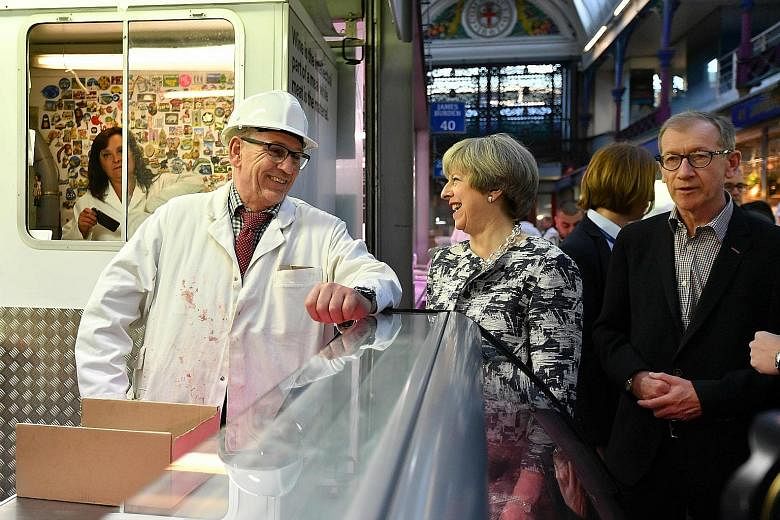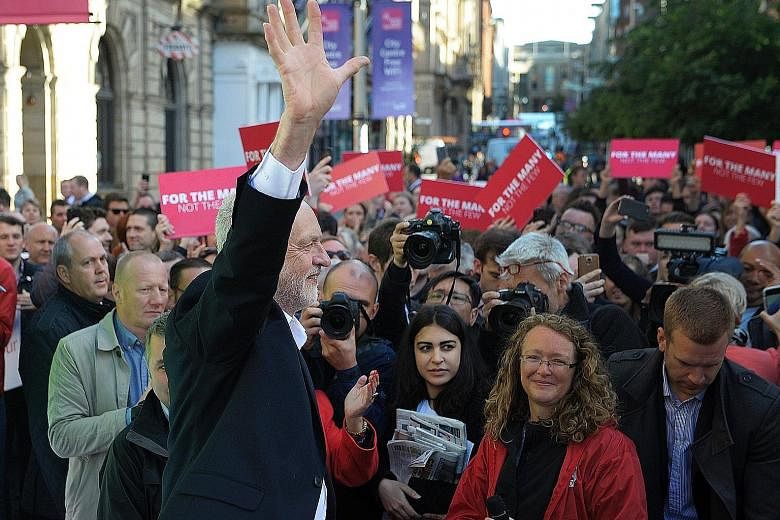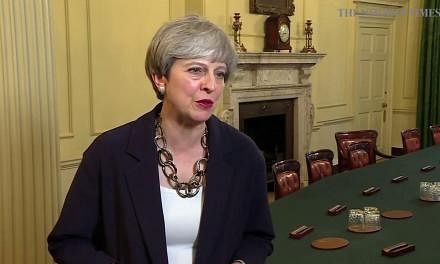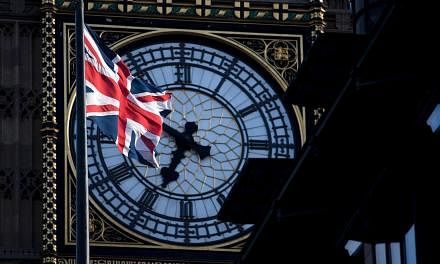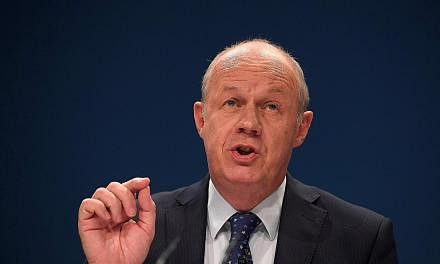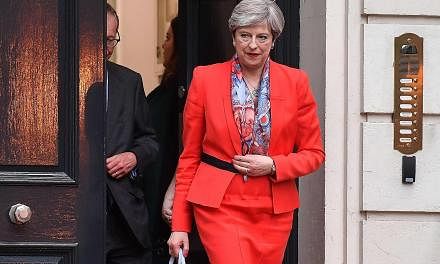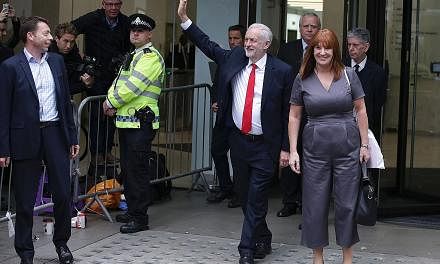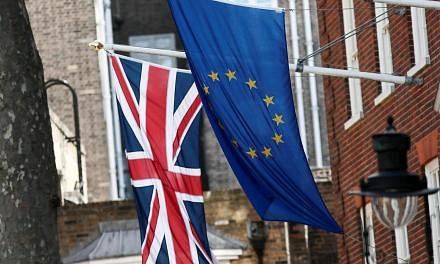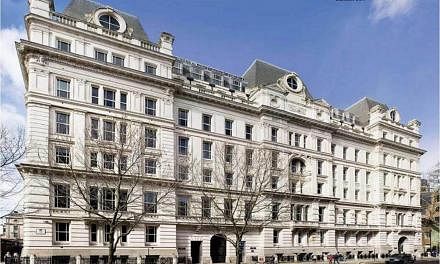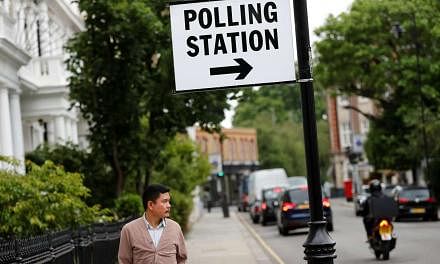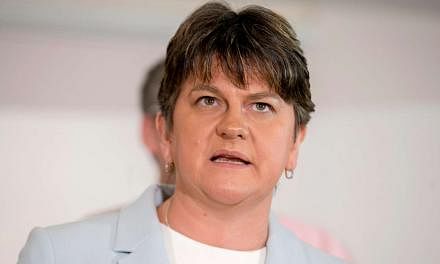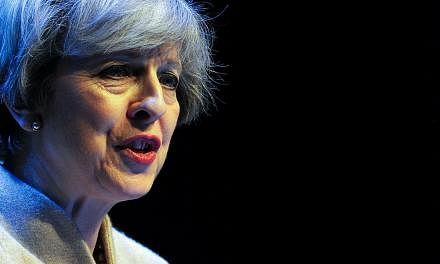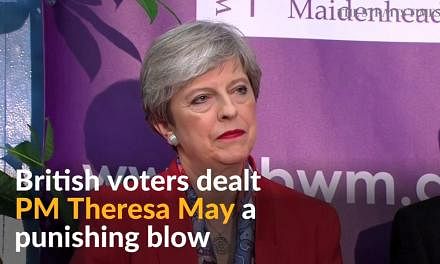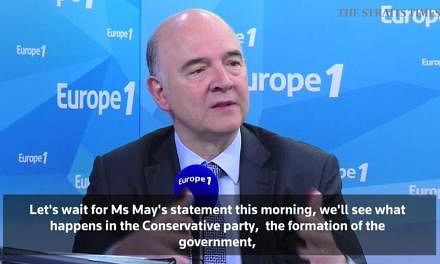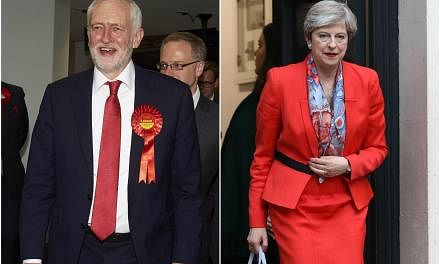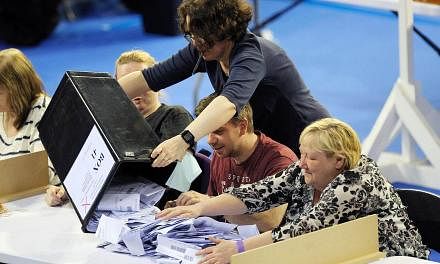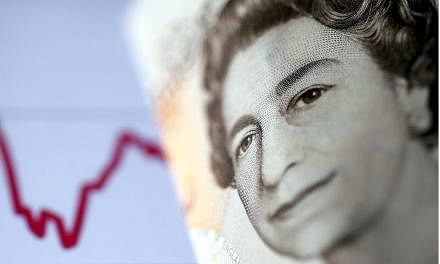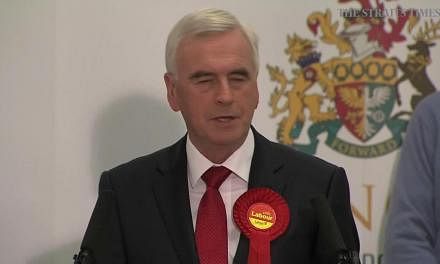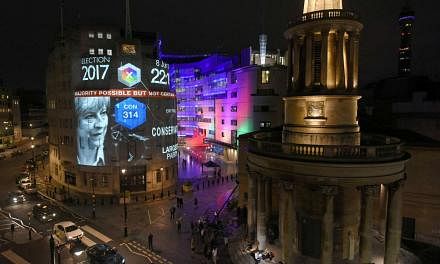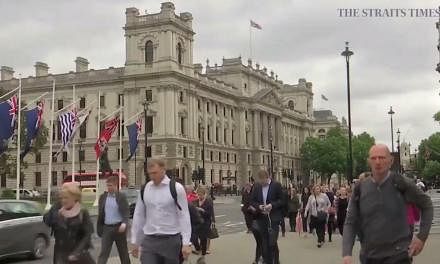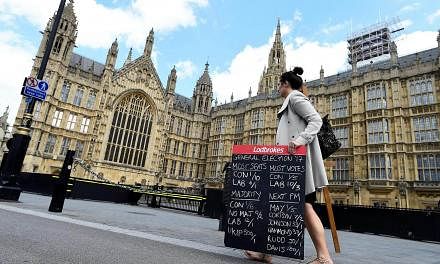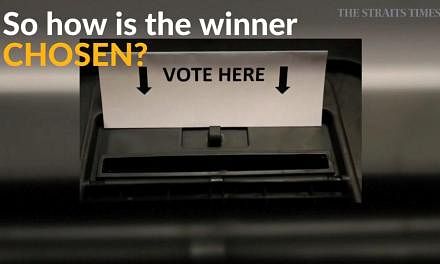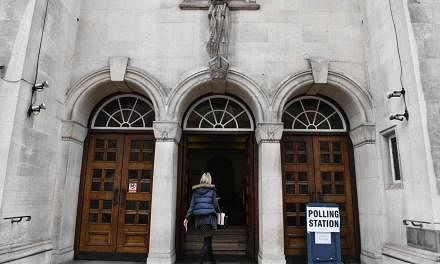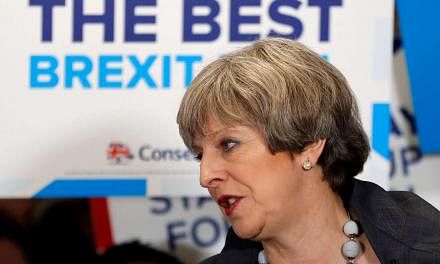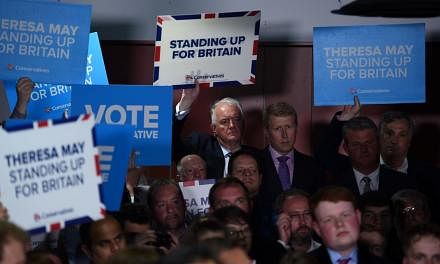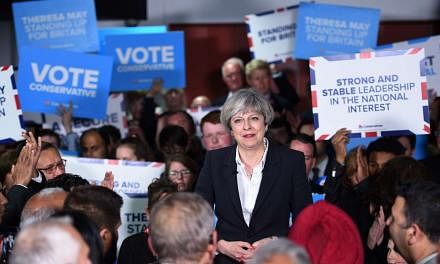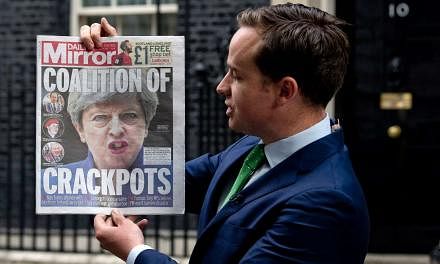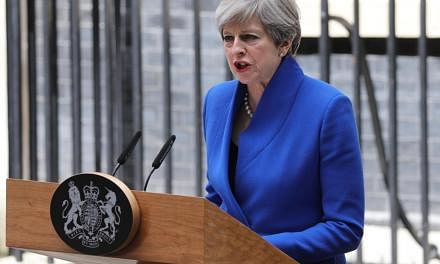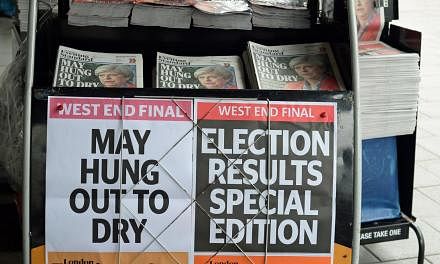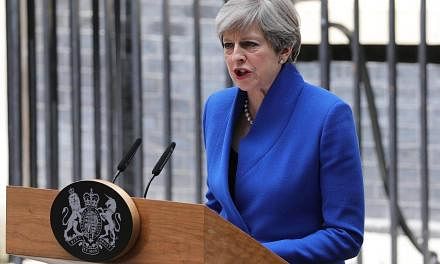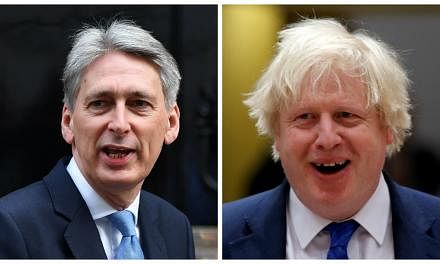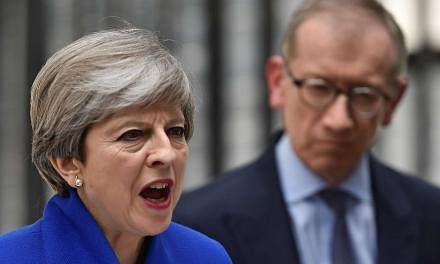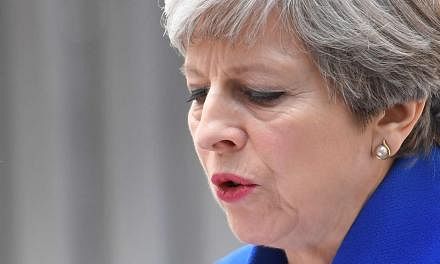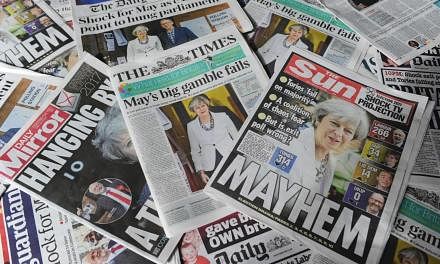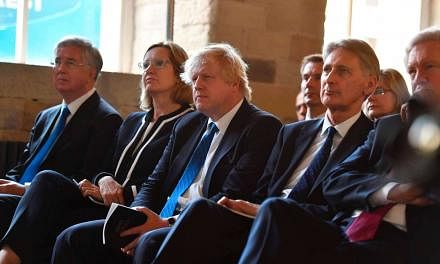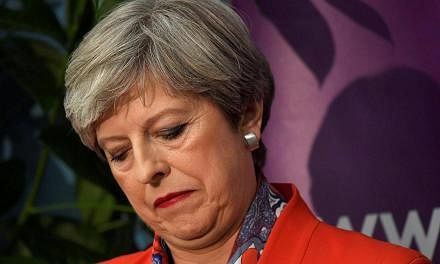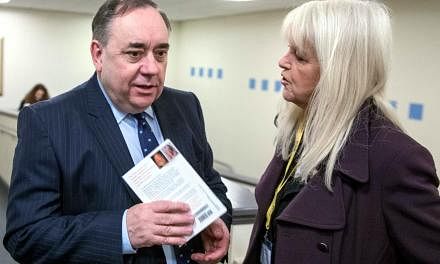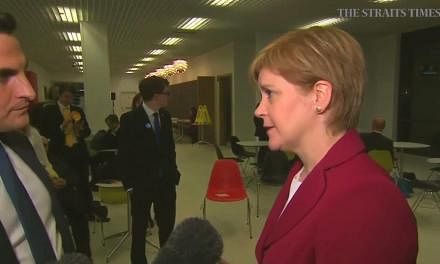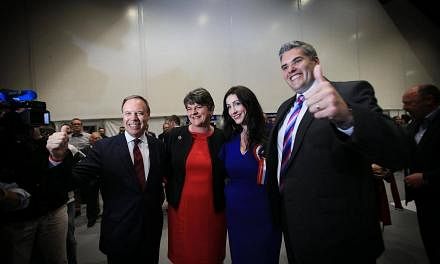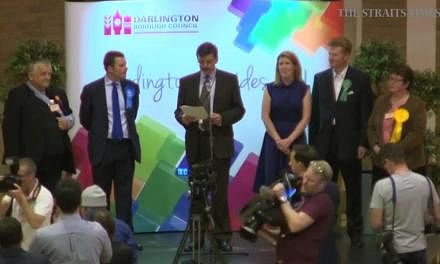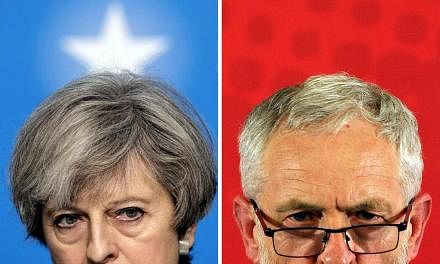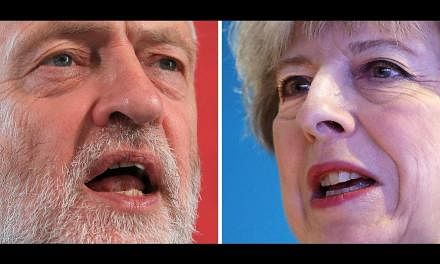When Prime Minister Theresa May called a snap election in April, she had made it all about Brexit, saying that a strong mandate would strengthen her hand in divorce negotiations with the European Union.
But as Britons cast their votes today, Brexit has been overshadowed by two terrorist attacks that happened two weeks apart, and a controversial manifesto by the Conservative Party that saw it doing a U-turn to appease angry voters.
Security has instead been thrust to the fore as the hot election issue, with Mrs May and her Labour Party rival Jeremy Corbyn attacking each other in the past days of campaigning over whether the attacks could have been thwarted.
Pressure on Mrs May continued to mount yesterday as details emerged that Italian security officials had shared information about one of the London Bridge attackers, Moroccan-Italian Youssef Zaghba, who was stopped from trying to enter Syria last year.
Her government also came under fire after police admitted that another London Bridge attacker and the Manchester suicide bomber were known to security agencies.
The opposition wasted no time in putting Mrs May in the hot seat over police budget cuts that happened during her watch as home secretary.
The Prime Minister responded by quickly declaring late Tuesday that she would throw out human rights laws to make deportation of foreign terror suspects easier.
In what was seen as a last-ditch attempt to soothe nerves ahead of Polling Day and to show that she has the "strong and stable leadership" that has been her campaign slogan, Mrs May vowed to get tough by reining in terror suspects even if there is not enough evidence to prosecute them.
But European Court of Human Rights officials said yesterday that Britain would have to declare a state of emergency in order to make the changes it wants to human rights laws.
Critics have also pointed out that Mrs May's readiness to rip up the laws contradicts the pledge in her manifesto not to amend the Human Rights Act before Britain leaves the European bloc.
On the final day of campaigning yesterday, Mrs May attempted to bring the focus back to leadership and Brexit, warning that if her party loses just six seats, the election will fall to "a coalition of chaos", a much-bandied handle by the Tories to describe an alliance of opposition parties.
Still, the latest consolidated polls show Mrs May still in the lead, with the Tories at 43 per cent, although Labour has narrowed the margin and trails by just 6 percentage points.
Mr Corbyn's surge in popularity has surprised many, not least of whom is Mrs May, who was widely believed to have called the election to boost her party's majority while Labour was languishing and mired in internal squabbles.
Meanwhile, the British media have made their endorsements clear ahead of today's polls.
Britain's top-selling newspaper, The Sun, backed the Conservatives, as did the Financial Times. Other right-wing newspapers such as The Daily Telegraph and The Times also gave Mrs May their backing early on. The left-leaning Guardian newspaper has endorsed the Labour Party, while The Economist switched its traditional support of the Tories in favour of the anti-Brexit Liberal Democrats.
Even then, some voters have yet to make up their minds.
"I would not want to vote for the Tories because they are going to make pensioners pay for the care they receive," said 52-year-old civil engineer Peter Hurley. "But at such a critical time for Britain, with terrorism, Brexit and Trump, the Tories probably offer the most credibility of all the parties."

